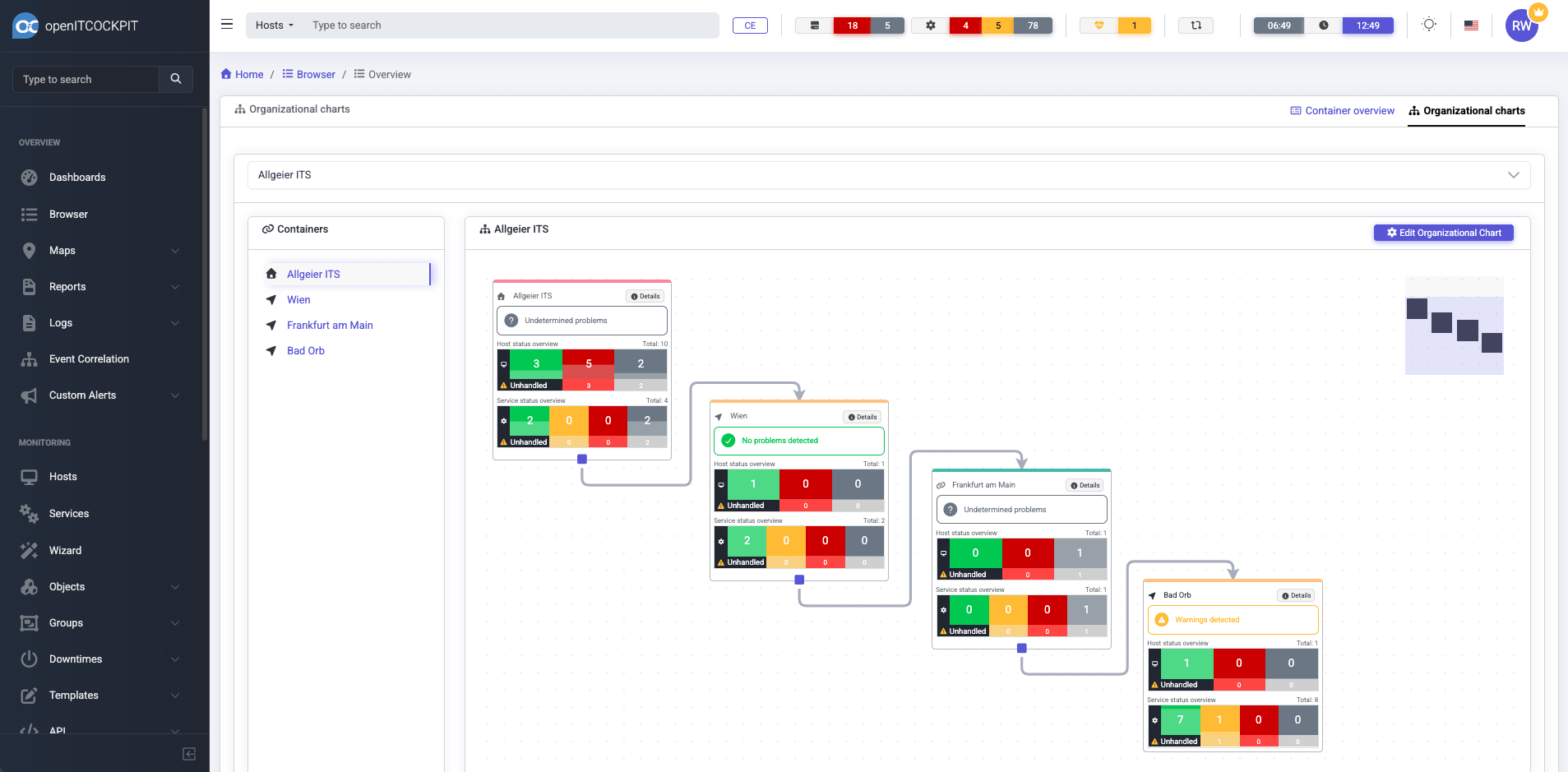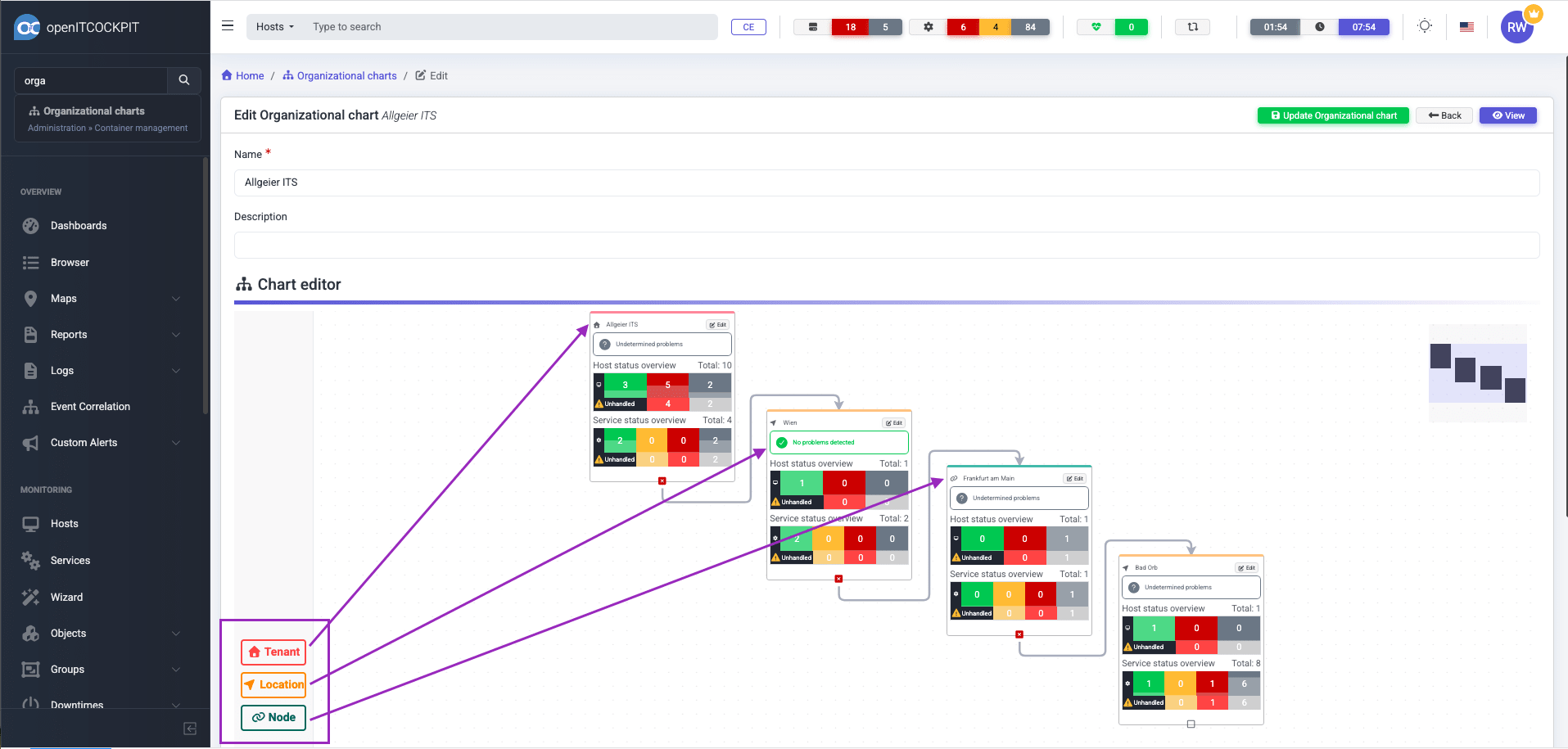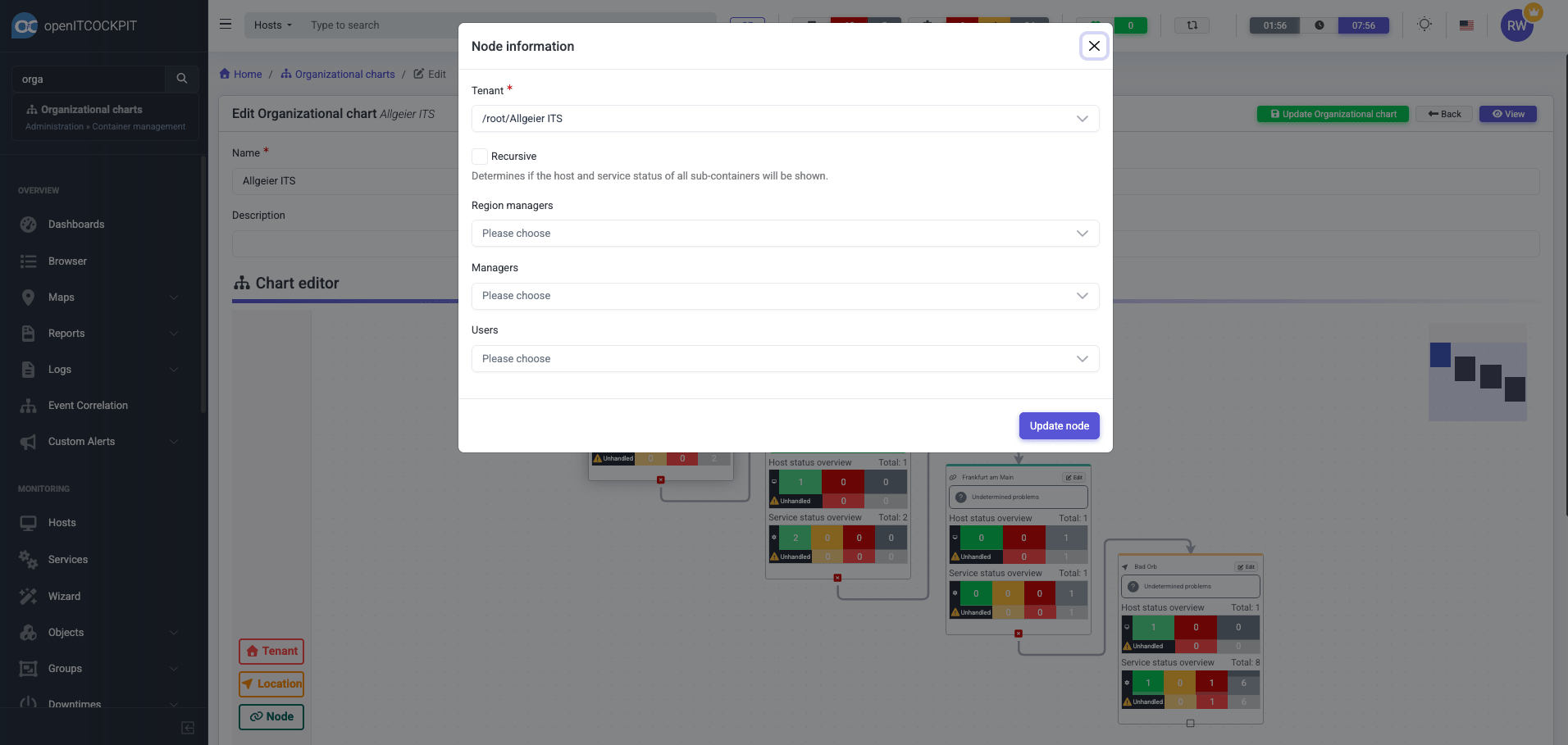Organizational Trees
With the container visualization tree, containers can be arranged and visualized in a freely definable tree structure, independent of permissions. The assignment is done via parent/child relationships and serves exclusively for the clear presentation and grouping of containers, without affecting access rights.
On the browser overview /browser page, an alternative view of the container structure is displayed. This overview is used to visually represent the organizational structure and its dependencies.
The overview takes into account the user permissions stored in the system. This means that all containers to which a user does not have access rights are automatically hidden. Based on the container ID, an additional tab for the organizational chart will be displayed.
Multiple virtual trees can be created per container. For the host status overview, the setting of the virtual container is_recursive is taken into account for resolving all child containers. Additionally, multiple users (openITCOCKPIT users) can be assigned (optional) to be identified as the correct contact person in the event of a failure.
Configuration of Virtual Trees¶
In the configuration area, an organizational chart can be created and edited. The following fields are available:
- Name of the tree (required)
- Description (optional)
On the left side, there is a selection of available container types, such as:
- Tenant
- Location
- Node
This selection can be dragged and dropped and positioned freely.
By clicking the Edit button, the editing area of a specific node can be opened.
A new window opens in which, depending on the type, a specific container can be selected. Additional settings can also be made:
- Container name (required)
is_recursiveIf this option is enabled, the host and service status overview for all child containers of the selected container will be considered and displayed.- Regional manager (optional)
- Manager (optional)
- User (optional)




